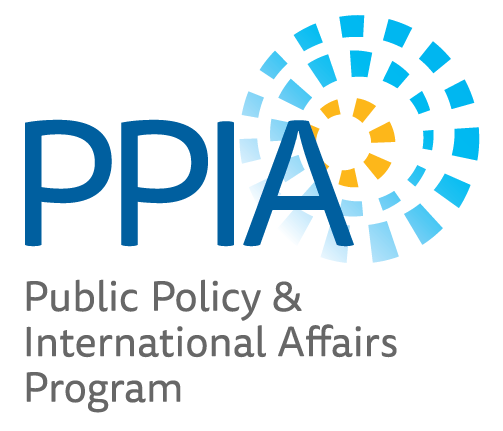Our History
In the late 1970’s, public policy academicians were acknowledging the gross underrepresentation of ethnic and racial minorities in public service and the hazard this posed to the state of American democracy. A consensus was formed around the issue during a conference and a call for action was made. Hence, the Public Policy and International Affairs Program (PPIA) was born in 1980 with support from the Alfred P. Sloan Foundation and under the administration of the Association for Public Policy Analysis and Management (APPAM). At the time it was called the Sloan Fellows Program.
The new program had to overcome significant challenges in recruiting students of color into positions of leadership that serve the public interest. These challenges included a limited pool of minorities in post-secondary and graduate studies, the lack of interest or awareness for the field of public affairs and the financial obstacles for graduate education. A program model was developed to recruit students into summer institutes that intensively trained them for graduate level work and exposed them to the profession of public service. These students were guaranteed substantial fellowships to a number of graduate schools. Over the years, the Sloan Fellows Program significantly impacted the graduate school enrollment of minority students and their subsequent career choices in public service.
In 1989, the Ford Foundation succeeded the Sloan Foundation as the primary sponsor and administration was transferred to the Woodrow Wilson National Fellowship Foundation. The name was also changed to the Woodrow Wilson Fellowships in Public Policy and International Affairs and reflected a growing program focus on international affairs. The Association of Professional School of International Affairs (APSIA) also joined APPAM as an institutional sponsor. The program retained its basic structure.
In 1996, the Ford Foundation shortened the program name to the Public Policy and International Affairs Program (PPIA), its current title. Administration of the program was moved to the Academy for Educational Development (AED).
In 1999, the Ford Foundation ceased funding and it was then that the new and current PPIA Program was started. In 2000 it incorporated as an independent, 501(c)(3) tax exempt organization and received generous transitional support from the Foundation for Child Development and the William T. Grant Foundation. Today the PPIA Program is building a new organization on a long established program model.
The new PPIA Program includes all Sloan, Woodrow Wilson, IIPP and PPIA Fellows in its community of over 5,000 alumni and is committed to sustaining those relationships and providing ongoing support for them.
Sign Up for Our Newsletter
CONTACT INFO
Mailing Address
3005 S Lamar Blvd, Suite D105, PMB# 181
Austin, Texas 78704
Phone: (612) 625-6944
Email:
info@ppiaprogram.org
HELPFUL LINKS
2024 © Copyright | All Rights Reserved | PPIA Program
Website powered by Neon One
